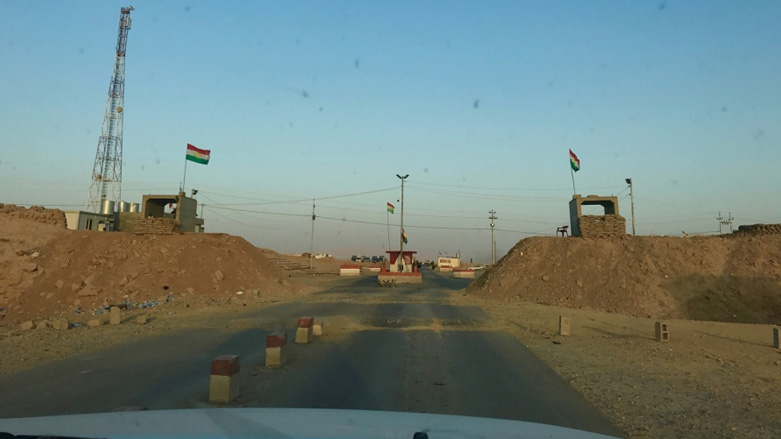Iraqi forces to re-open Makhmour – Erbil road this week: Mayor

ERBIL, Kurdistan Region (Kurdistan 24) – Iraqi forces will officially re-open Makhmour – Erbil road this week, Makhmour's Mayor Rizgar Ismael said on Saturday.
“On Thursday, Iraqi military commanders informed us that the Iraqi federal government has decided to open Makhmour – Erbil road from their side,” Ismael told Kurdistan 24.
No corresponding statement from Iraqi security officials has yet been made, and none had responded to requests for comment by Kurdistan 24 at the time of publishing.
The road has been closed since the Oct. 16 attack by Iraqi forces and the Iran-backed Shia Hashd al-Shaabi militias in Kirkuk province and other disputed territories, including the town of Makhmour.
“The road is expected to be officially re-opened this week and the situation will be normalized for people,” he added.
Last month, Kurdish Peshmerga forces, as an initiating gesture of goodwill, unilaterally re-opened the sides of the Erbil – Makhmour and Erbil – Kirkuk roads of which they are in control.
Peshmerga and Iraqi forces that had fought Islamic State (IS) militants together for the previous few years, fought each other along several front lines following the Kurdistan Region's Sep. 25 referendum on independence.
The two forces had intense clashes in Altun Kupri (Pirde), Makhmour, and the Zummar area near the Syrian border with casualties being reported from both sides.
In the past month, the federal government has shown an increased willingness to engage in dialogue to resolve disputes with the Kurdistan Region, but it's still a long way from pre-referendum levels of cooperation.
In a Saturday speech from the disputed town of Tuz Khormatu, head of the Baghdad Parliament's Security and Defense Committee Hakim al-Zamili said that Peshmerga forces would be welcome to return to the area, "if they were under the command and received salaries from the [Iraqi] government."
Since the chain of command and salaries of the forces fall under the jurisdiction of the Ministry of Peshmerga, it was not immediately clear what the statement was meant to communicate.
Editing by John J. Catherine
